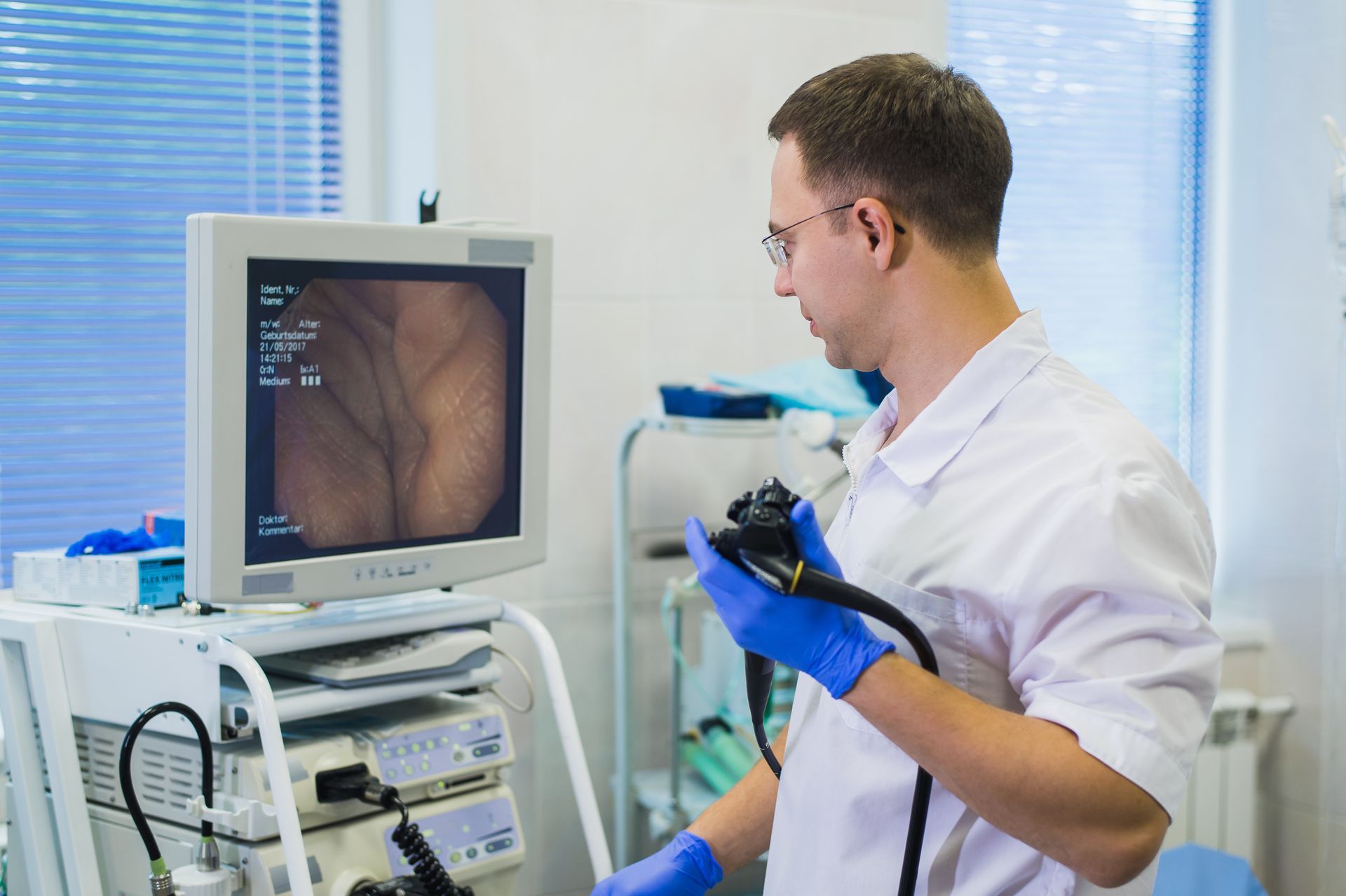Finding Polyps During a Colonoscopy: What Does it Mean?
No one looks forward to the day they need to undergo the dreaded “turning 50 test,” otherwise known as a colonoscopy. This important screening is recommended for everyone who is either of average risk and is at least 50 years old, or who is younger and meets high-risk criteria such as family history, previous diagnosis, or having a form of IBD such as Crohn’s or ulcerative colitis. It’s an important part of monitoring health with age, but there are still a few reasons that patients may fear having the procedure.
One of the most common causes of patient anxiety surrounding colonoscopies is what may be found. Patients often worry that signs of cancer will be identified during this screening. And, while that is not often the case, it can feel as though your worst fears have been confirmed when a gastroenterologist informs you that they have found and removed polyps from your colon. In reality, however, this situation should serve as reinforcement that your decision to undergo a colonoscopy was the right one.
So, what do these polyps really mean? Here is what you should know about them, including what they could have indicated for your future health were they not located and removed.
What are Polyps?
Polyps are growths ranging in diameter from less than a quarter to several inches. They can be found throughout the gastrointestinal tract, including the colon. During a colonoscopy, a gastroenterologist is looking specifically for these colon polyps, along with any indications of existing cancer. In appearance, they may be flat or have a stalk similar to a mushroom, but in most cases, they are small bumps arising from the colon’s lining.
Are Polyps a Sign of Colon Cancer?
Polyps are benign growths, meaning they are not cancerous. However, they are important indicators regarding the future development of colon cancer. Polyps are primarily categorized into one of two types: hyperplastic and adenoma. Hyperplastic polyps do not develop into cancer, and while most adenomas do not either, nearly all cases of colon cancer originate from them. Locating and removing these polyps early is key in eliminating any that may be pre-cancerous, thereby removing their risk of progression as well.
What is Colon Cancer Risk after Polyp Removal?
While a colonoscopy can identify the presence of polyps, it cannot distinguish one form from another. For this reason, any observed polyps are removed during the procedure for further testing. The findings of these tests will help determine future colon cancer risk and the frequency with which colonoscopies are needed. Factors such as number, size, and type of polyps removed will all need to be considered. For small polyps, a repeat colonoscopy will likely be recommended in a timeframe of three to five years. However, if the polyps were larger, flat, or if visibility of the colon was reduced during the initial procedure, a repeat screening may be needed sooner.
No patient wants to hear terms such as “growth,” “removal,” or “testing” following a colonoscopy. However, in most cases, such terminology means that the test did exactly what it should. It allowed your gastroenterologist to identify potential pre-cancerous growths and remove them. Not only does this mean that colon cancer may have very well been headed off at the pass, but it also means a better understanding of your risk and the measures needed to protect your health moving forward.
If you are 50 or older or are considered high-risk for colon cancer and have not yet scheduled a colonoscopy, now is the time. In most instances, you will leave with nothing more than peace of mind, and in others, the results you receive may well save your life. Speak with your primary care physician if you are uncertain of your own risk factors, and when the time for your own recommended screening arrives, contact Digestive Diseases Center to request an appointment with one of our highly-qualified gastroenterologists.
CONTACT
850-763-5409
ADDRESSES
4 LOCATIONS
204 E 19th Street, B, Panama City
12216 Panama City Beach Pkwy, D, Panama City Beach
4295 3rd Ave, Marianna
101 Good Morning St., 109B, Port St. Joe
Subscribe to our newsletter:
subscribe to our newsletter
We will get back to you as soon as possible.
Please try again later.



